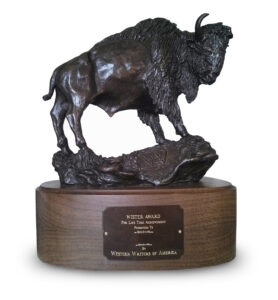The Boxer Rebellion: The Dramatic Story of China’s War on Foreigners That Shook the World in the Summer of 1900 by Diana Preston
The 1900 uprising against foreigners in China—led by a society of martial artists secretly encouraged by the Dowager Empress Cixi—left tens of thousands of Chinese dead and marked the beginning of the end of the Qing, China’s last imperial dynasty. Under siege for months, foreigners holed up in Tianjin and Beijing were finally rescued by allied Japanese, European and American forces. Chinese leaders then and today drew two lessons from this episode: Beware of nationalist uprisings because they can lead to regime change; and beware of foreign imperialists.
The Last Empress: Madame Chiang Kai-shek and the Birth of Modern China by Hannah Pakula
New York-based author Pakula captures the chaos of pre-Communist China through the story of a political strongman’s wife. General Chiang Kai-shek began ruling China in 1925, a decade after the collapse of the Qing dynasty, and his new wife, Soong Mei-ling, became his key adviser, translator and personal envoy to the United States. When the Communists swept to power in 1949, Chiang’s Nationalists fled to Taiwan and set up a shadow government that was quickly recognized by the American leaders who had been swayed by Soong. Today’s Chinese leadership remains obsessed with the “rebel” province of Taiwan.
Nixon and Mao: The Week That Changed the World by Margaret MacMillan
In 1972 Secretary of State Henry Kissinger and Chinese Premier Zhou Enlai engineered a meeting between President Richard Nixon and Mao Zedong in Beijing. It was the first diplomatic exchange with mainland China since the U.S. severed relations after Mao’s Communist victory in 1949. Nixon believed good U.S.-China relations could stabilize the region and counterbalance the Soviet Union. China, recovering from the brutal Cultural Revolution, was eager to establish trade ties. The new relationship helped political stability, MacMillan writes, but might have inadvertently “fed the old Chinese belief that China was the center of the world.”
China: Fragile Superpower by Susan L. Shirk
The real danger from China lies not in its astonishing growth, but in its leaders’ deep insecurity, according to Shirk, former Deputy Assistant Secretary of State in the Clinton administration. Since Deng Xiaoping cracked down on pro-democracy students at Tiananmen Square in 1989, China has promoted extreme nationalism directed against Japan, Taiwan and the U.S. But popular revolts brought down the Qing dynasty in 1912 and the Republic of China in 1949, and Shirk worries that rather than suffer this same fate, China’s current leaders might channel any threatening nationalistic fervor into full-blown war.
Originally published in the April 2010 issue of American History. To subscribe, click here.




